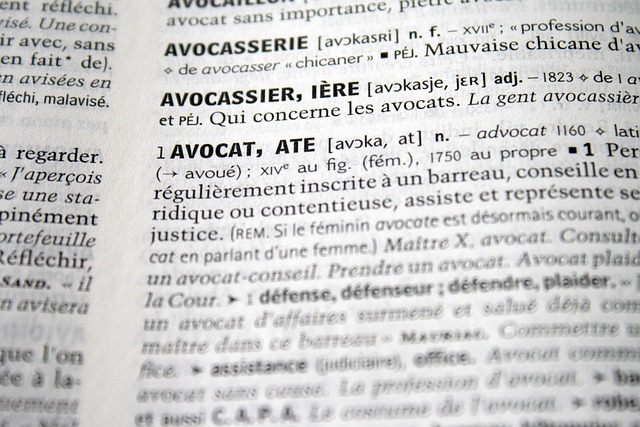Divorce mediation offers a collaborative, controlled approach to separation, avoiding litigation's stress, cost, and length. Beneficial when children are involved, it minimizes emotional trauma. Mediators act as neutral third parties, guiding couples through structured meetings for child custody, asset division, and open communication. Preparing with financial documents, priority lists, and individual counseling enhances outcomes. Mediation provides transparent pricing, faster resolutions, and lasting amicable agreements, reducing litigation's emotional toll. It offers a collaborative alternative to contentious spousal support decisions, streamlining asset division with predictable cost models. Equitable asset division aims for fair distribution through collaborative problem-solving, fostering trust and control over costs.
Divorce can be an emotionally charged process, but professional divorce mediation services offer a peaceful alternative. By opting for mediation over litigation, couples can navigate complex issues like child custody, spousal support, and asset division amicably. This article delves into the benefits of mediation, exploring how skilled mediators facilitate negotiations, prepare clients for successful discussions, and help reach fair settlements without the adversarial nature of court. Discover how this process can make ending a marriage less stressful and more collaborative.
- Understanding Divorce Mediation Benefits
- How Mediators Facilitate Peaceful Negotiations
- Preparing for Successful Settlement Discussions
- Child Custody Decisions Through Mediation
- Navigating Spousal Support and Alimony
- Equitable Asset Division: A Mediation Perspective
Understanding Divorce Mediation Benefits

Divorce mediation offers a collaborative approach to resolving disputes, allowing couples to navigate their separation with dignity and respect. Unlike litigation, which can be lengthy, stressful, and costly, this process empowers partners to have a say in the decisions that shape their future. By engaging in mediation for divorce settlement, individuals can maintain control over the outcome while fostering an amicable atmosphere. This method is particularly beneficial when children are involved, as it reduces the potential trauma associated with court battles.
The advantages extend beyond individual well-being; mediation for divorce also provides financial benefits. With transparent pricing divorce services, couples can expect clear and predictable costs. Unlike traditional legal fees that may escalate quickly, many mediators charge a fixed, one-time fee for their divorce help, ensuring peace of mind throughout the process. This cost-effective approach allows spouses to allocate resources more efficiently, focusing on rebuilding their lives post-divorce rather than legal bills.
How Mediators Facilitate Peaceful Negotiations

Mediators play a pivotal role in facilitating peaceful negotiations between divorcing couples. They act as neutral third parties, guiding the process and ensuring both sides feel heard and respected. Through structured meetings, mediators help couples navigate complex issues like child custody, spousal support, and asset division in a collaborative manner. By focusing on mutual understanding and shared goals, mediators create an environment conducive to amicable settlements without the stress and costs associated with litigation.
Unlike traditional divorce processes that often involve back-and-forth legal battles, mediation for divorce settlement encourages open communication and creative problem-solving. Mediators use various techniques to help couples find common ground, explore alternative solutions, and reach agreements they both feel are fair and satisfying. This approach can result in faster resolutions, reduced legal fees, and a less emotionally draining experience, ultimately leading to more positive outcomes for everyone involved—including children caught in the middle of the divorce process.
Preparing for Successful Settlement Discussions

Preparing for successful mediation sessions is key to achieving a positive and amicable divorce settlement. Before entering the negotiation process, couples should take time to gather their financial documents, such as tax returns, bank statements, and investment portfolios. This step ensures that both parties have a clear understanding of their assets and liabilities, facilitating transparent discussions during the mediation for divorce settlement. Additionally, creating a list of priorities regarding child custody, spousal support, and division of assets can help focus the conversation and set realistic expectations.
Promoting open communication is another vital aspect of preparation. Couples should encourage each other to share their perspectives and concerns openly without fear of judgment. This openness allows for better understanding and paves the way for compromise. Moreover, seeking individual counseling before mediation sessions can help individuals process their emotions and make informed decisions during the unlimited session divorce or one-time fee divorce help processes, ensuring a more constructive outcome for all involved.
Child Custody Decisions Through Mediation

In mediation for divorce settlement, child custody decisions are made collaboratively by both parents, with the assistance of a trained mediator. Unlike court proceedings where a judge makes decisions based on legal criteria, mediation encourages open dialogue and shared responsibility. This process allows couples to consider their children’s best interests while taking into account each parent’s unique perspective. By involving both parties in the decision-making, mediation fosters a sense of ownership and cooperation, leading to more lasting and amicable agreements regarding child custody arrangements.
Unlike unlimited session divorce models or one-time fee divorce help services that can lack transparency and structured support, mediation offers a clear path forward with transparent pricing. The mediator facilitates negotiations until an agreement is reached, ensuring both parties feel heard and respected. This structured approach to handling child custody ensures fairness and reduces the emotional toll often associated with litigation, ultimately contributing to a smoother transition for both parents and children involved.
Navigating Spousal Support and Alimony

Navigating the complex world of spousal support and alimony can be daunting for many couples going through a divorce. In traditional litigation, these discussions often devolve into heated arguments over numbers and legalese. However, professional divorce mediation services offer a significantly more collaborative approach. Mediators act as neutral third parties, guiding spouses towards mutually beneficial agreements that consider both financial needs and future lifestyles.
Unlike the hourly billing structure of law firms, mediation for divorce settlement offers a predictable cost model, often featuring unlimited sessions within a set fee. This innovative approach ensures that couples can focus on reaching resolution without worrying about escalating legal fees. Whether it’s deciding on the duration and amount of spousal support or dividing assets in a fair and equitable manner, these services streamline the process, fostering an atmosphere of understanding and cooperation rather than adversarial relationships.
Equitable Asset Division: A Mediation Perspective

In divorce mediation, the goal of equitable asset division is to ensure a fair and just distribution of marital property between both parties. This process allows couples to work together to create a solution that considers each spouse’s needs and financial goals, rather than leaving it up to a court decision. Mediators help navigate complex financial matters by facilitating open communication and providing unbiased guidance. They assist in identifying and valuing assets, including tangible and intangible property like retirement accounts, real estate, and personal belongings.
A transparent approach to pricing, such as a one-time fee for divorce help, can further enhance the mediation experience. Predictable costs ensure that both parties understand the financial implications of the process, fostering trust and collaboration. This contrasts with litigation, where legal fees can vary widely and unexpectedly. Mediation offers a more controlled environment, allowing couples to make informed decisions about their future without the added stress of escalating legal expenses.
